Review: COLORS BY DANIEL TEMKIN at Church Of The Intersession
Composer Daniel Temkin’s debut album, COLORS was recently released on Orchard Records, and it is wild (in a good way!)
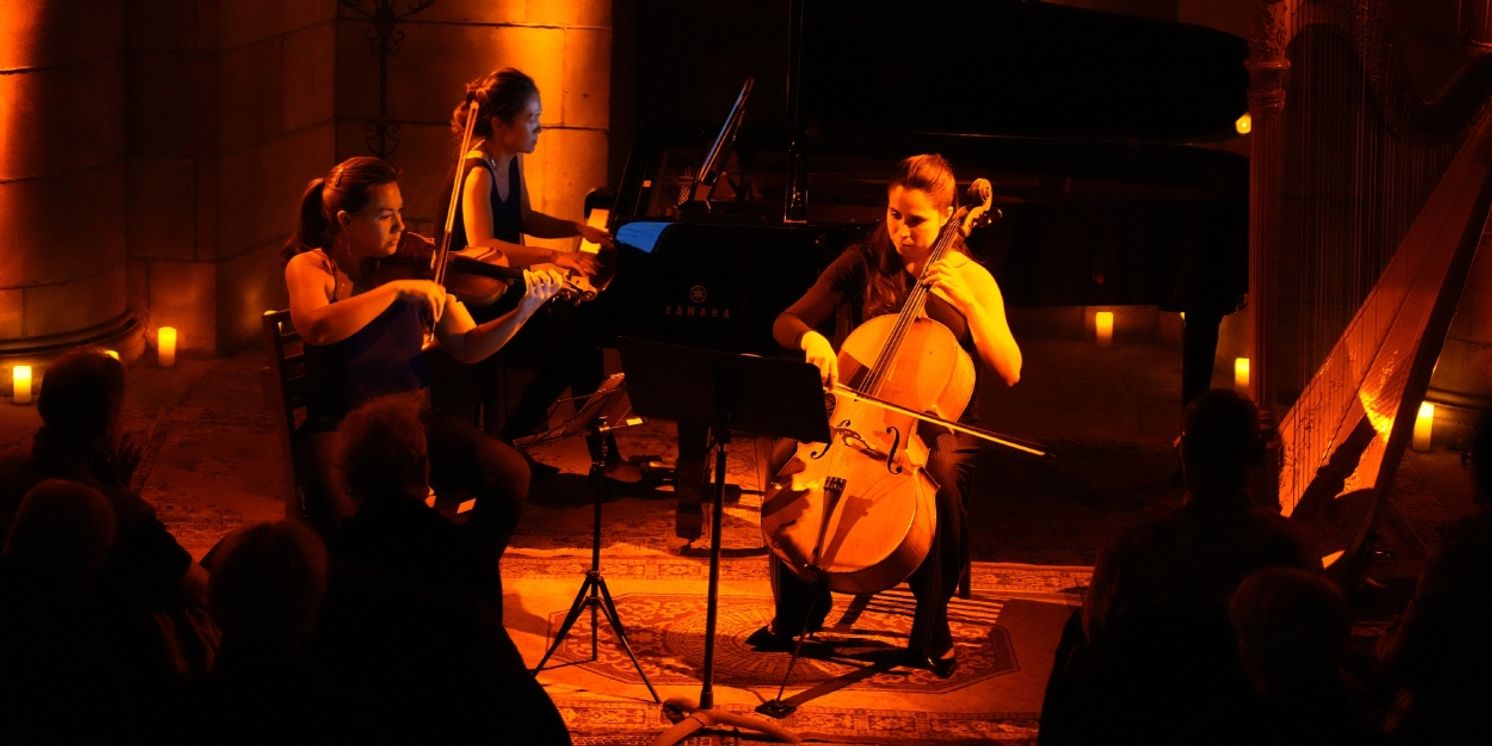
COLORS by Daniel Temkin
MARCH 25-26, 2024
Church of the Intercession
Composer Daniel Temkin’s debut album, COLORS was recently released on Orchard Records, and it is wild (in a good way!) It’s chamber music in the conventional sense but that’s all that’s conventional about it, and it’s “coming out party” as part of the Death of Classical’s Crypt Series was one of the most original performances this critic has heard in a long time. The term modern music gets tosses about fairly liberally these days, but it tends to be more of a catch-all expression (e.g. “doesn’t fit in any box nicely”).
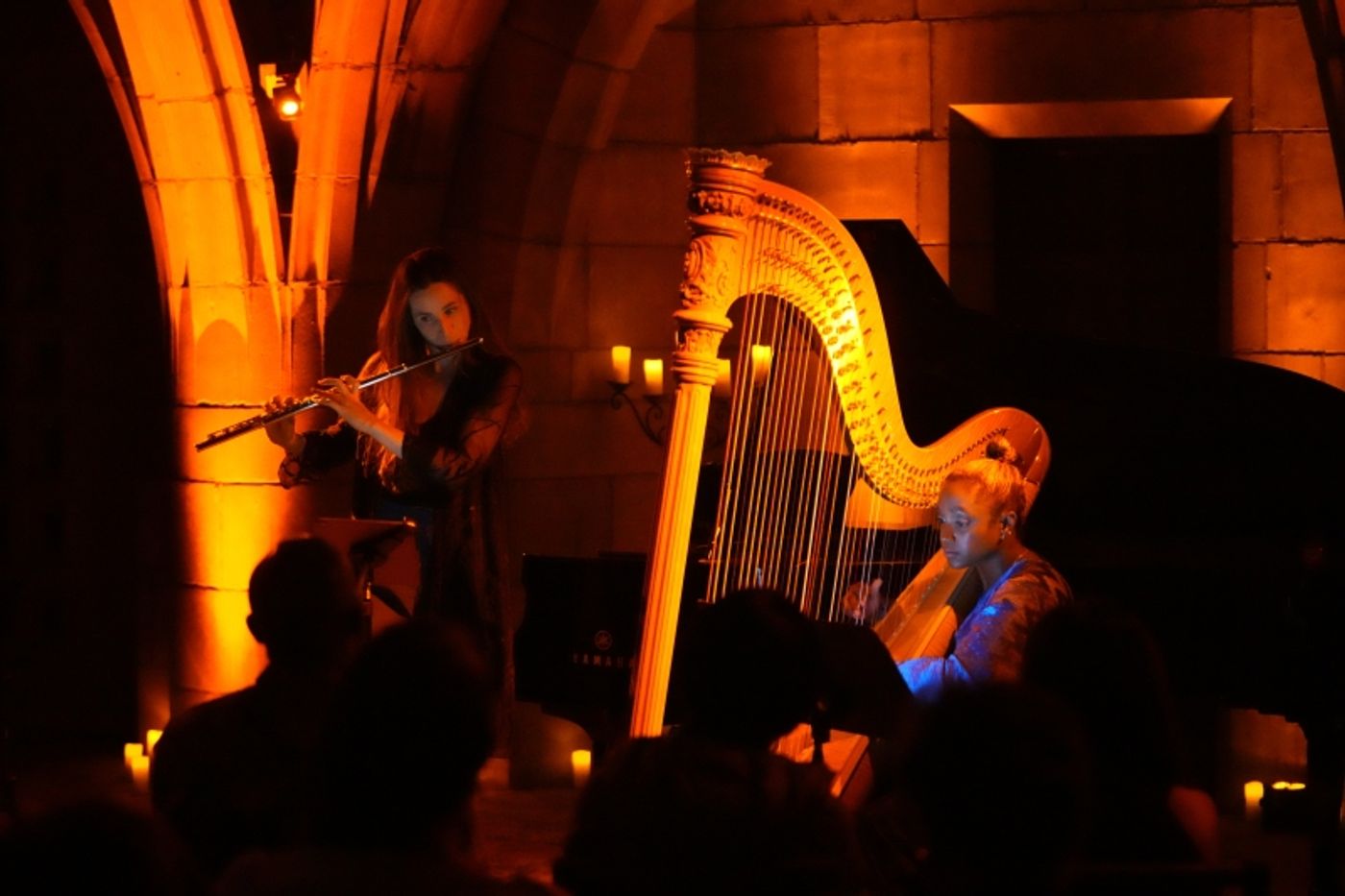
Mr. Temkin’s new album is quite wonderful, but it pales in comparison to the selections being performed live (to say nothing of the spectacular venue.) The first thing one notices while listening to the album is the fact that Mr. Temkin (a percussionist deep down) is equally adept written for a vast multitude of instruments – and not just composing simple melodies on them, but rather, extraordinarily complex melodies, unique to the instrument on which it is performed (as a “reformed clarinetist, I was stunned by some of the sounds emanating from Mr X clarinet. I’d love to have a look at what it looks like in the score!)
To perform such a remarkably complicated score live, you’d better have some smoking hot soloists. Well, fortunately, Mr. Temkin was blessed with just such a collection of players – each one a super advanced player.
The Program began with two ravishing solo pieces for the harp entitled: “Moments for harp: Awakening, and In the Butterfly’s song I hear your name.” Ashley Jackson is a mesmerizing harpist, her intensity was palpable as she appeared to literally breathe out the music.
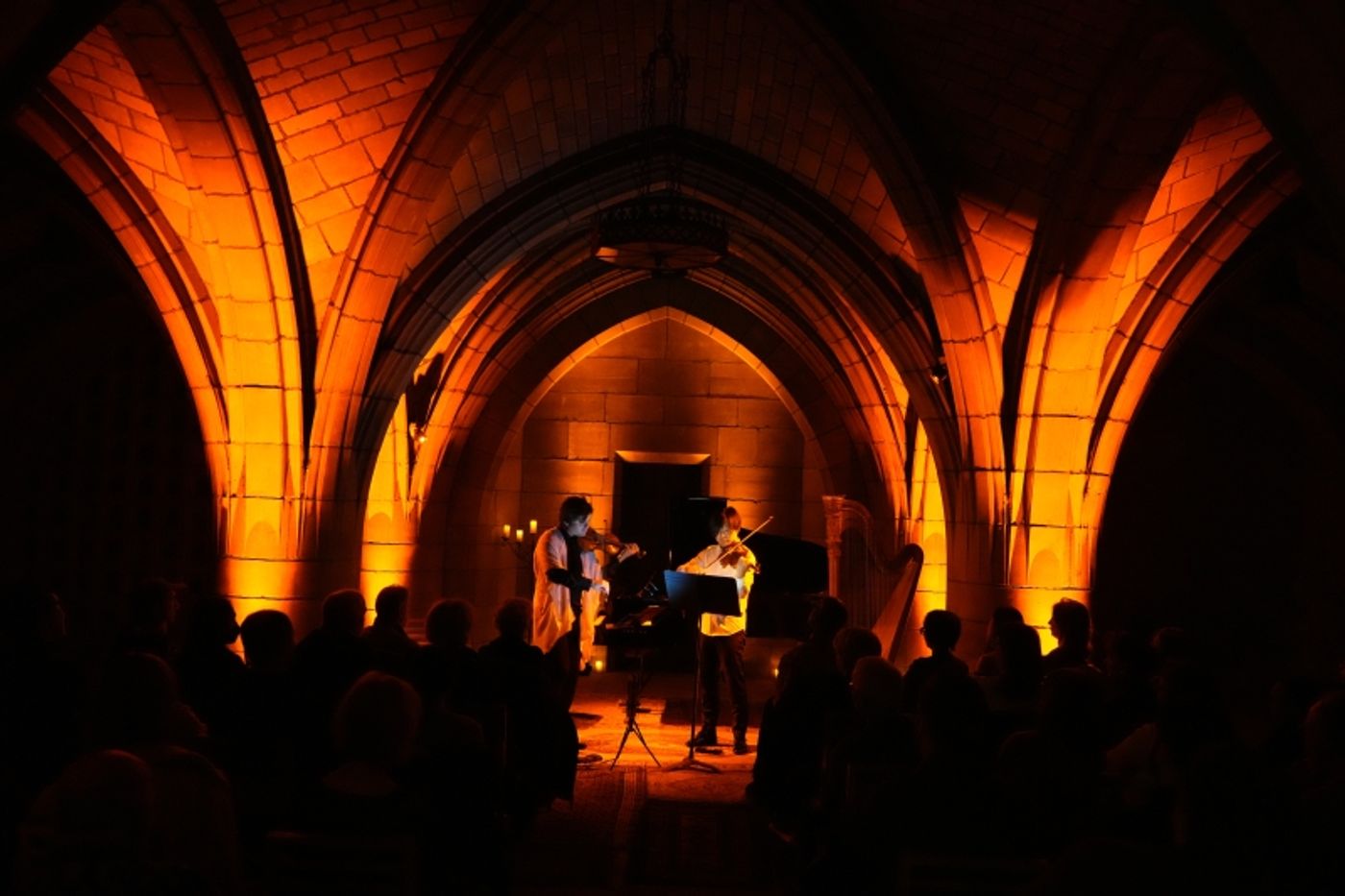
“Time Capsule” featured two violins, Francisco Fullana & Siwoo Kim. The duo seemed to even breathe together throughout the piece, beginning with a gentle call and response melody that gave way to “statements” in harmony and alone, like a conversation. The composer described the second half of the piece as “two children playing in the yard – chasing one another around,” and that was immediately the rendered effect as the playing got faster and agitated, and energetic before a quiet ending, as if the children were now putting their toys away.
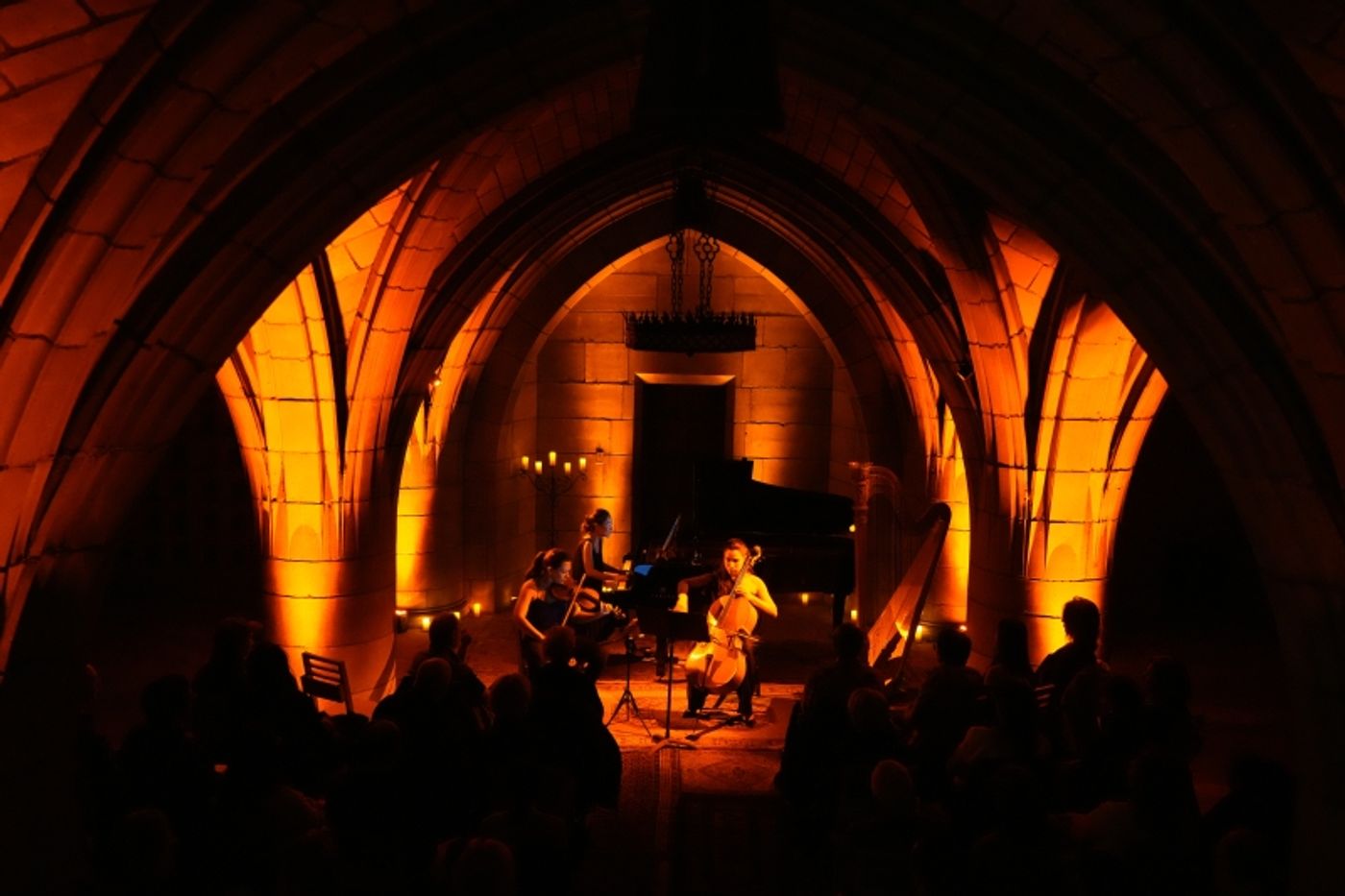
Flow, a two-part piano trio followed featuring Ariana Kim, violin; Christine Lamprea, cello; Qing Jiang, piano, was next. Part one: “Wash over me, wash me over,” well, I’d like to say it was the highlight of the evening – but there were too many highlights to single out only one. Nonetheless, the work is a ravishing combination of longing, giving way to joyful descending, piano cascades that slow morph into a more serious tension. The cello’s pulsating staccato is soon joined by anxious stabs on the piano, which give way to a heavenly, long held, high note on the violin, against which the piano seemed to “talk” again, in brief spurts to the cello, like the remnants of a dying conversation. (The conversational nature of the composer’s style (accidental or by design was unmistakable – in most of the pieces.)
“ Tide Pull” the second part of the piano trio was an energetic, episodic piece, that never allowed the tension to fade, until the very last moments, as the solo piano faded away almost like church bells in the distance.

Fierce is rarely a term used to describe a flautist, and even less often a harpist! But the performance of “Together, We” (Emi Ferguson, flute and Ashley Jackson, harp) could be called nothing less. Right from its mysterious opening arpeggio on the harp, answered by a micro-tonal modulation on the flute, the piece grabbed the audience by the throat and had them leaning forward in their seats. Ms. Ferguson looked possessed as she groaned and grunted (in a good way) ferociously through the odd meter and haunting melodies of the piece, while Ms., Jackson provided the anchor, keeping the two from simply taking flight.
Unspoken for viola, performed by En-Chi Cheng was revisit of sorts to the melody stated earlier in the program on harp: In the Butterfly's Song, I Hear Your Name. The piece took on an entirely different light on the viola as Ms. Cheng’s deft bowing, and enormously expressive bends and slide brought out an almost vocal-like quality (aspects which the harp version could not match).
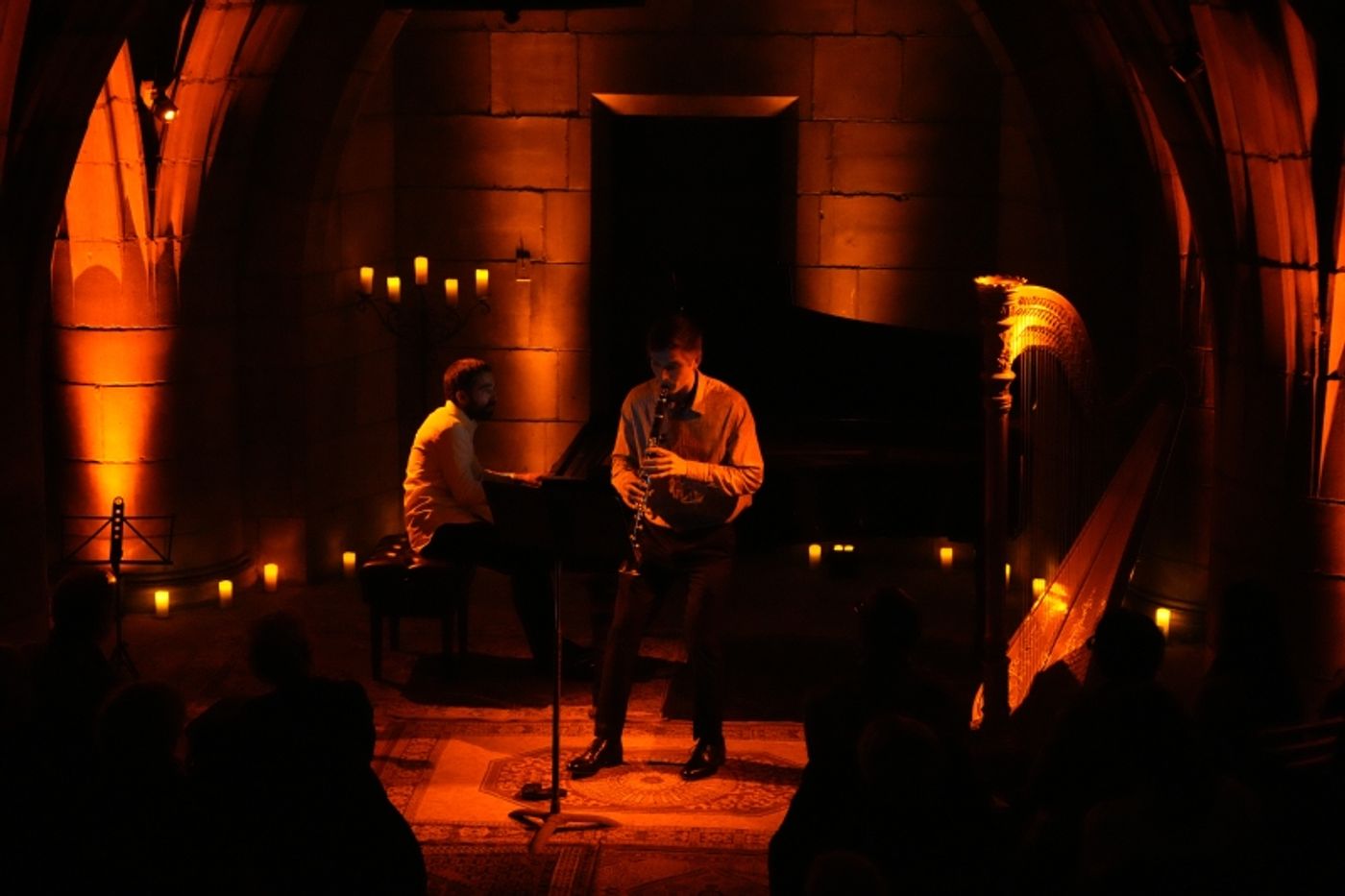
The final piece of the evening: “Corners of Light” a duet between clarinetist Barrett Ham and pianist Daniel Anastasio again brought forward the conversational nature of the composer’s style. In addition, it took both instruments into uncharted waters – technically and sonically as the score called for plucked piano string and percussive taps on the clarinet (one wonders what that looks like in the score!) The fluttering trills on the clarinet that we heard at the beginning of the piece return near the end, concluding with the wind slowly halting, even as the fingering continued, creating the aforementioned percussive taps.
It’s difficult to attend a concert like this, in a setting like this, featuring such extraordinary music, played by such extraordinary players and wonder why anyone thinks “Classical Music is Dead” – to play on the title of the series. This entire evening was a magnificent paean to the vitality of contemporary music. Congratulations to Mr. Temkin for a wonderful new record. Kudos to the extraordinary ensemble that performed it. And another immense laudation to Andew Ousley for another spectacular concert.
Peter Danish
Reader Reviews
Videos

